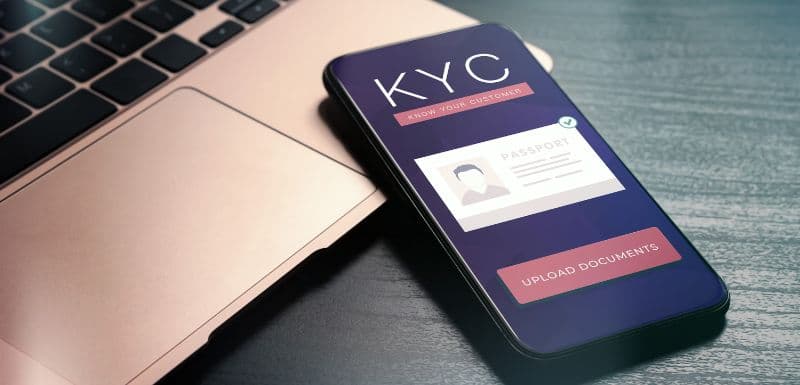New KYC Changes Applicable From 1st April: How to Check Your Status and What Should You Do?

SEBI has made changes to the KYC requirements from 1st April 2024. All AMCs and SEBI Registered Intermediaries (SRIs) have to check the KYC details of existing investors and new investors. As a result, all investors will have to check their KYC status to continue with their existing and new investments.
If their KYC status is anything other than "KYC validated", they may face some restrictions on some or all financial transactions. In this article, we will discuss the changes in KYC rules, how to check your status, and what you should do.
Current Documents Classified as OVD for KYC
Before we look at the KYC statuses, it is important for you to understand which documents are accepted as officially valid documents (OVDs) for KYC purposes. From 1st April 2024, the KYC status will depend on the officially valid document (OVD) you submitted at the time of KYC. The current set of documents classified as OVD for KYC purposes include the following:
- Passport
- Driving licence
- Aadhaar
- Voter’s ID
- Job card issued by NREGA duly signed by an officer of the State Government
- Letter issued by the National Population Register containing details of name and address
- Any other document as notified by the Central Government in consultation with the Regulator
KYC Status and Action Required
Let us now look at the various KYC statuses, what they mean and what action is required at your end.
|
KYC Status |
What Does It Mean |
What Action Is Required |
|
KYC Validated |
You had used Aadhaar as OVD through online mode.
Your Aadhaar OVD data is validated with the issuing authority i.e., UIDAI PAN-Aadhaar linking is done Email and/or mobile are validated |
No action is required.
You can continue transacting with the existing AMCs and also open an account with any new AMC or SEBI Registered Intermediary (SRI) |
|
KYC Registered |
You had submitted Aadhaar physical copy.
Your Aadhaar OVD data could not be validated with the issuing authority i.e., UIDAI PAN-Aadhaar linking is done Email and/or mobile are validated |
You can continue transacting with the existing AMCs or SRIs.
To make an investment with a new AMC/SRI, you will be required to submit a copy of Aadhaar where the QR code is scannable and validated. |
|
KYC Registered |
You had used a non-Aadhaar OVD from the list of allowed OVDs
Your OVD data could not be validated with the issuing authority. Email and/or mobile are validated |
You can continue transacting with the existing AMCs or SRIs.
To make an investment with a new AMC/SRI, you will be required to submit the allowed OVD to transact. The intermediary will upload the OVD as a KYC modification request with the respective KRA.
To avoid submitting KYC documents for every new investment with a new AMC, you should get your KYC status updated to “KYC validated”. You can do that by completing the KYC process using Aadhaar as OVD through online mode and getting successfully validated. |
|
KYC on Hold |
You had used a non-Aadhaar OVD from the list of allowed OVDs.
Your OVD data could not be validated with the issuing authority. Email and/or mobile are not validated |
You will need to submit a valid email and/or mobile with the intermediary, who will upload the details as a KYC modification request with the respective KRA.
To avoid submitting KYC documents for every new investment with a new AMC, you should get your KYC status updated to “KYC validated”. You can do that by completing the KYC process using Aadhaar as an OVD through online mode and getting successfully validated. |
|
KYC Registered |
You had used a deemed OVD (other than allowed OVDs)
Your OVD data could not be validated with the issuing authority. Email and/or mobile are validated |
You can continue transacting with the existing AMCs or SRIs.
To make a new investment with a new AMC/SRI, you will be required to submit the allowed OVD to transact. The intermediary will upload the OVD as a KYC modification request with the respective KRA.
To avoid submitting KYC documents for every new investment with a new AMC, you should get your KYC status updated to “KYC validated”. You can do that by completing the KYC process using Aadhaar as an OVD through online mode and getting successfully validated. |
|
KYC on Hold |
You had used a deemed OVD (other than allowed OVDs)
Your OVD data could not be validated with the issuing authority. Email and/or mobile are not validated
All financial and select non-financial transactions will be restricted. |
You will need to submit a valid email and/or mobile or make the PAN-Aadhaar link and submit the confirmation to the existing and new SRI/MF. The details will be uploaded as a KYC modification request with the respective KRA.
To avoid submitting KYC documents for every new investment with a new AMC, you should get your KYC status updated to “KYC validated”. You can do that by completing the KYC process using Aadhaar as an OVD through online mode and getting successfully validated. |
|
KYC on Hold |
You had used a non-OVD
All financial and select non-financial transactions will be restricted. |
You will have to do re-KYC in the existing and new SRI/MF using the current set of prescribed OVDs.
To avoid submitting KYC documents for every new investment with a new AMC, you should get your KYC status updated to “KYC validated”. You can do that by completing the KYC process using Aadhaar as an OVD through online mode and getting successfully validated. |
|
KYC on Hold |
Your contact details (email and/or mobile) are invalid, irrespective of the OVDs submitted.
All financial and select non-financial transactions will be restricted. |
You will have to provide new contact details (email and/or mobile) before transacting with existing SRI/MF.
To avoid submitting KYC documents for every new investment with a new AMC, you should get your KYC status updated to “KYC validated”. You can do that by completing the KYC process using Aadhaar as an OVD through online mode and getting successfully validated. |
How to Check Your KYC Status?
You can check the current KYC status by visiting your respective KRA website. These include:
1) CDSL Ventures Ltd. CVL
Visit cvlkra and click on the “KYC Inquiry” link.
2) NSE (DotEx International)
Visit nsekra and enter your PAN number in the “KYC Inquiry” section.
3) NSDL Database Management Ltd (NDML)
Visit kra.ndml and click on the “KYC Inquiry” link.
4) CAMS
Visit camskra and enter your PAN number in the “MY KYC Status” section.
5) Karvy
Visit karvykra and click on the KYC Enquiry link.
Your KRA will display the KYC status and you can take action, if required.
How to Update Your KYC Status?
If your existing KYC status is anything other than “KYC validated”, you can validate/update your KYC status from any AMC or your respective KRA website. Click on the update KYC link and follow the instructions. You will need to keep your PAN and Aadhaar card details ready before proceeding with the KYC update. Once your KYC status gets updated to “KYC validated”, you can invest seamlessly with any AMC.
Get KYC Validated for Seamless Investing
The recent KYC changes have been introduced as per the provisions of the Prevention of Money Laundering Act (PMLA). Hence, it is essential for investors to comply with the changes. Getting your KYC validated is a one-time process and can be done quickly if you have the required documents handy. Hence, investors should complete the one-time KYC process to ensure they can continue investing seamlessly. Complying with KYC norms is essential for long-term investing to accomplish your financial goals and achieve financial freedom.
Your Investing Experts
Relevant Articles
The Pros & Cons of Robo Advisors
Over the years, the definition of FinTech or “Financial Technology” has expanded from covering companies that supply back-end software systems to Financial Institutions to encompassing a multitude of ventures that leverage technology to disrupt existing ways of executing financial transactions or managing money.
How FinEdge is leveraging Tech during the COVID-19 pandemic
We are currently in the midst of unprecedented times. As the COVID-19 pandemic brings the world to a literal standstill, Financial Advisors are scrambling to find their feet and continue serving their customers. To add fuel to the fire, equity markets witnessed a selloff of unrivalled proportions as fear and panic took over right after the lockdown began. During the past month of the crisis, FinEdge has proudly continued to deliver high quality Financial Advice to customers, while ensuring the complete safety of its employees. Here are some ways in which leveraging on technology has helped us in our endeavours.


